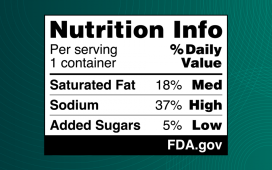48-year-old woman taking biotin had abnormal results for multiple tests, including total testosterone
MONDAY, June 4, 2018 (HealthDay News) — Biotin, which is included in many hair, skin, and nail growth over-the-counter products, can affect multiple hormone levels, according to a case study published online May 10 in the Journal of the Endocrine Society.
Heather M. Stieglitz, Ph.D., from the University of North Carolina at Chapel Hill, and colleagues reported on the case of a perimenopausal woman aged 48 years who presented with palpitations, hirsutism, and inability to lose weight.
On laboratory tests, the authors identified an unusual endocrine hormonal profile, including pituitary hormones below reference intervals and gonadal and adrenal hormones above reference intervals. The multitude of aberrant hormone levels prompted an inquiry into potential medication and/or supplement use. The patient disclosed that she had been taking a biotin supplement, and after comprehensive workup, including a scheduled surgical procedure, abnormalities were attributed to biotin interference. The case was unique with abnormalities not only in the thyroid-stimulating hormone (TSH) “sandwich” immunoassay but also in tests for gonadal steroids and adrenal and pituitary hormones.
“Biotin effect on our patient’s endocrine testing led to decidedly abnormal findings, unnecessary medical referrals and diagnostic studies, and comprehensible psychological distress. Interference with one immunoassay, TSH, persisted a full two weeks after discontinuation of biotin; indeed, some tests demonstrate sensitivity to lesser quantities of biotin,” the authors write. “Improved communication between patients, health care providers, and laboratory professionals is required concerning the likelihood of biotin interference with immunoassays.”
Copyright © 2018 HealthDay. All rights reserved.








